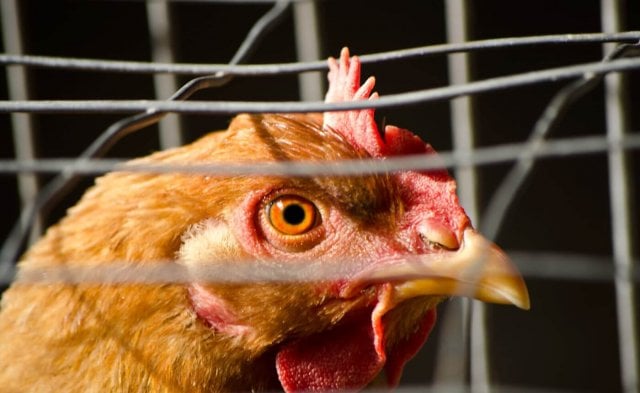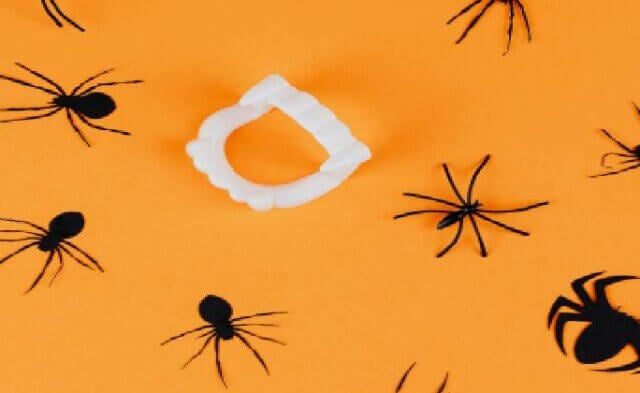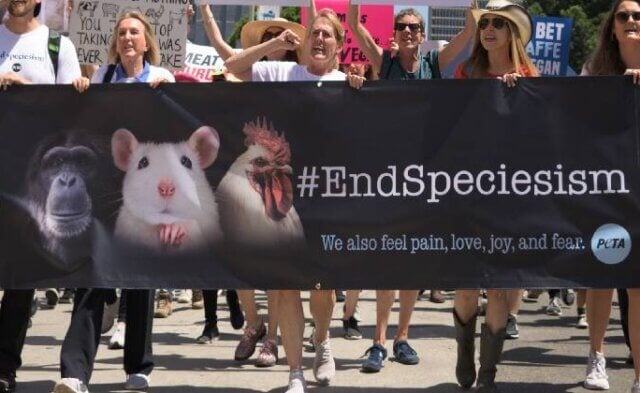The beauty industry was notorious for its experiments on animals, but many people didn’t realize that animals have also been used to test everything from food products to car crashes. PETA has put many of these junk tests out of commission, and we’re celebrating the end of 2023 by taking a walk down memory lane to assess the impact of our lifesaving work over just the last decade.
Giving Beauty Brands a Humane Makeover
- Secret, Suave, Aussie Hair Care, Herbal Essences, Dove, and other major brands have joined PETA’s Global Beauty Without Bunnies program—committing to not conducting, commissioning, paying for, or allowing tests on animals.
- Unilever and Colgate joined PETA’s list of companies that are working for regulatory change—agreeing to test on animals only when required by law, to be transparent with us, and to diligently promote non-animal methods.
- China now exempts companies marketing general cosmetics from its usually required animal testing in some circumstances—a major advance that came only after PETA launched funding for representatives of the Institute for In Vitro Sciences to travel to China in order to train scientists there on non-animal test methods.

Taking Food and Beverage Tests off the Table
- PETA scientists persuaded numerous food-industry companies—including Yakult Honsha, Dole, Kirin Holdings, McCain Foods, Campbell Soup Company, General Mills, Kikkoman, and Barilla—to stop conducting or funding deadly experiments on animals.
- California’s Strawberry and Table Grape commissions, the National Processed Raspberry Council, the Washington Red Raspberry Commission, and the Hass Avocado Board stopped funding or conducting experiments on animals after PETA informed them that such tests are not required by law and are inapplicable to human health.
- Taiwan’s Food and Drug Administration ended multiple deadly mandates and recommendations for tests on animals—including dental, blood pressure, drowning, electroshock, and food-safety ones—by food and beverage companies seeking to make health claims for marketing their products. This precedent-setting progress came after PETA submitted scientific critiques showing that such tests are irrelevant to human health and thousands of PETA supporters demanded that they be ended.
Slamming the Brakes on Automaker Tests
- Following talks with PETA, General Motors upgraded its policy toexpressly include a prohibition on paying others to conduct crash tests on animals. Ford Motor Company followed suit, slamming the brakes on its animal testing after PETA uncovered its financial involvement in a gruesome experiment in which 27 pigs had been killed for a crash test.
- Volkswagen (VW) ended all tests on animals not required by law following PETA Germany’s communications with VW executives, protests at the company’s headquarters, and an overwhelming number of e-mails from PETA supporters. VW had funded an experiment in which macaques were locked in chambers and forced to inhale diesel fumes emitted from an old pickup truck and a Volkswagen Beetle for hours.





